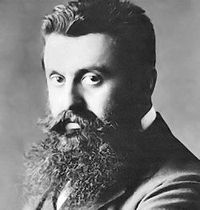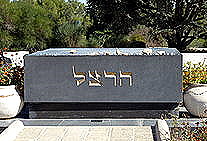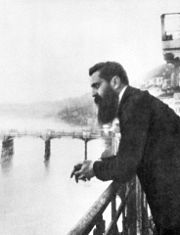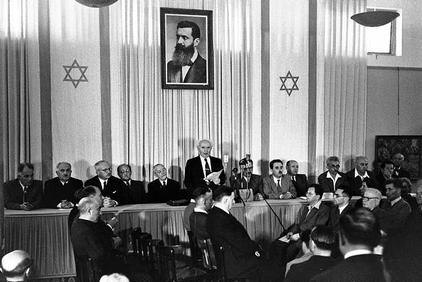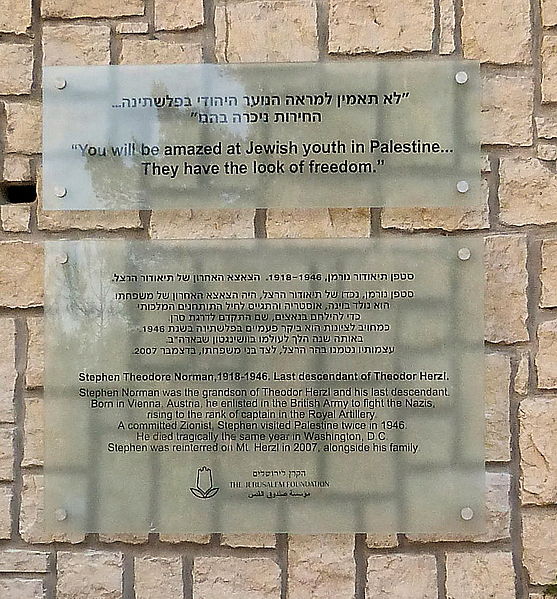| |
October/November 2012 |
|
| Browse our
|
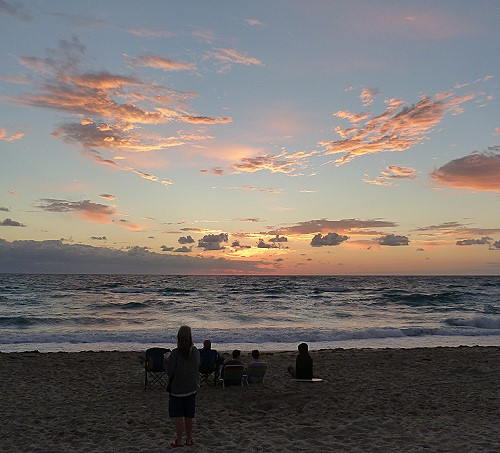 The longing makes the Messiah” - Theodor Herzl, Altneuland
The Messiah and Theodor Herzl By Jerry Klinger
"But it is strange," said Friedrich, "how such adventurers are always able to win the people's confidence." "There seems to be a profound reason for that," remarked David. "It was not that the people believed what they said, but rather that they said what the people believed. They soothed a yearning. Or, perhaps it would be more correct to say, they sprang from the yearning. That's it. The longing creates the Messiah. "You must remember what dark days those were when a Sabbatai and his like appeared. Our people were not yet able to take account of its own situation, and therefore yielded to the spell of such persons. It was only at the end of the nineteenth century, when the other civilized nations had already attained to self-consciousness and given evidence thereof, that our own people-the pariah-realized that its salvation lay within itself that nothing was to be expected from fantastic miracle-workers. They realized then that the way of deliverance must be paved not by a single individual, but by a conscious and alert folk-personality. The Orthodox, too, realized that there was nothing blasphemous in such a view. Gesta Dei per Franco the French used to say. 'God works through the Jews,' said our truly pious ones who did not permit intriguing rabbis to stir them up. God Himself, in His inscrutable wisdom, decides what instruments will serve His ends. Such was the sensible reasoning of our pious Jews when they threw themselves enthusiastically into the national enterprise of restoration. And so the Jewish nation once more raised itself to nationhood." 1 ~ ~ ~ ~ ~ ~ ~ ~ ~ ~ ~ ~ ~ ~ ~ ~ ~ ~ Jews have longed for the Messiah since Prophetic times. He is not mentioned in the Torah. The Jewish Messiah is not a personal Messiah through whom salvation and redemption can be obtained. The Jewish Messiah is a national/universal one. The Messiah, literally the “Anointed One”, will be a King. He will usher in a future time of peace, love, and harmony under God. The strife, turmoil, fear, hunger and distress, suffering and oppression of the Jewish people will end forever. War will be no more. The Jewish people will live safely in the land that God had given them and worship the Lord. The Messiah will bring the Messianic era of peace and good for all of God’s creations. Woody Allen, the Jewish American comic and cynic quipped about the time of the Messiah. “ The lion will lay down with the lamb, but the lamb won’t get much sleep.” For over 2,500 years Jews have been longing for the Messiah. They have repeatedly proclaimed that the Messiah has come. The Messiah did not have to be Jewish to usher in the Messianic age. Cyrus King of Persia, Alexander the Great and to a large of number of Jewish seniors in South Florida, President Franklin Roosevelt had been called the Messiah by Jews. However, being Jewish will help. The Messiah, according to tradition, is supposed to come from the Davidic line of Jewish Kings. It will not do for a non-Jewish Messiah to rebuild the Temple in Jerusalem. So far, we Jews still wait. Dozens of Jews have been proclaimed the Messiah over the centuries. Some were men of war, some were just plain charlatans, and some were men of peace. Rabbi Akiba truly believed that Shimon Bar-Kochba, a man of war until he was killed by the Romans, was the Messiah. Tens of thousands of Jews willingly, eagerly, followed Shabbatai Tsvi in the 17 th century as their proclaimed Messiah. He was leading them back to the Promised Land until the Turkish Sultan gave him two choices, convert or die. He converted. Tragically some of his followers followed him into Islam, and self delusion. It was a mystical test of faith they said. Jews have a curious pre-condition for the coming of the Messiah ben David. Before the Davidic Messiah can come and begin the Messianic era a different Messiah must come first. He is the Messiah ben Yossef. He could be a man of peace or a man or war. He will come to prepare the ground. Tradition says he will die in his efforts, most say a great battle, before the age of God’s peace will begin. Far from being a rabbinic source with credentials on the subject I “Ask(ed) the Rabbi.com”. “ Is the Jewish idea of a Moshiach found in or directly mentioned in the Torah (the Five Books of Moses)? Is it true that the Jewish idea of the Moshiach began in the time of the Prophets? Is it necessary for the Moschiach ben Yossef to precede the Moschiach ben David? Thanks” (The response) Yes, it is an interesting anomaly. Many years ago I asked an expert in Tanach and the writings of the Rambam why that was and he explained that importance of the Messiah is what he brings with him. The Messianic Era, the Temple, world peace, a direct connection to God etc., are what give the Messiah importance; not the person. According to Jewish Tradition there will be two Messiahs; one will be Moshiach ben Yosef and the other Moshiach ben David. The Moshiach ben Yosef will precede Moshiach ben David and the Sages teach that it is very possible that his identity will remain unknown. Moshiach ben Yosef is mentioned in the Babylonian Talmud, Tractate Sukka, Midrashim, the Zohar, the Maharal etc. What is the reason for such a tradition? Before the spiritual advent of the Messianic Era it is necessary to have a form of mirror image that is physical in nature. Just as Yosef was the physical provider of the Jewish People so too will the physical needs of the Jewish People be taken care of before the Moshiach ben David can rule. That is why Tradition teaches that Mashiach ben Yosef will be killed in battle against the enemies of Israel. Best regards, Rabbi Z.” ~ ~ ~ ~ ~ ~ ~ ~ ~ ~ ~ ~ ~ ~ ~ ~ ~ ~
Theodor Herzl 2 is regarded as the founding father of the modern State of Israel and incorrectly as the father of Zionism. Herzl was far from being the first to call for or the first to try and bring the Jews home to Palestine. He was the founder of Political Zionism 3 with the publication of his small book, Der Judenstaadt 4 (1896). His ideas were neither new nor original. Political Zionism became the driving, successful, practical ideology for the restoration of the Jewish State. Herzl was the face of Zionism, a movement of many views and different motivations. It was advanced by Jews and even Christians.
Herzl was re-buried in the national cemetery in Jerusalem on a hill that was renamed Mt. Herzl in 1949 5 . His remains, hidden during the Nazi era in Vienna, returned with ceremonial pomp and solemn circumstance. They were enshrined in a black stone crypt, centrally located and elevated in a large ceremonial plaza, 45 years after his death. The reburial paralleled the biblical story of the Jews carrying the bones of Joseph, the beloved son of Jacob, from exile in Egypt for reburial in the land of Israel. Herzl’s bones and those of his family, that could be found, were eventually brought to Mt. Herzl. Herzl was the face of the Zionist movement for barely eight years before his sudden tragic death at 44. Some say he died of a broken heart brought about by the stress of trying to prepare the way to save the Jews. Some say he died from the latent effects of earlier, youthful indiscretions that left his body and mind weakened, prone to sickness. He died a martyr for the Jewish people having accomplished incredible acts of symbolic restoration but limited, practical actuality. He, and those who followed him, many whose names and accomplishments are long lost to knowledge except to esoteric academics, succeeded in accomplishing what had not been able to be done in 2,000 years of life in the Diaspora. Herzl miraculously succeeded in the creation of the State of the Jews and the restoration of the Jewish people to their land. The 19 th century was a tumultuous age. It was the age of the Nation States in Europe and the emancipation of the common man. Jews eagerly joined the new movements. They believed. They sought. They trusted that the new movements would lead to their emancipation. Herzl, an assimilated, marginally self-identified Jew thought so as well. Painfully, Herzl came to understand acceptance of the Jew as Jews in Christian Europe was a delusion. The infamous Dreyfus Trial 6 shocked him to his core. Ironically, Herzl believed that Dreyfus may have been guilty of treason against France. France, to Herzl, was the shining pinnacle of Liberté, égalité, fraternité 7 for the Jew. Herzl was shocked when France turned on Dreyfus not for what he may have done but because he was a Jew. Herzl never traveled to America. His knowledge, his awareness of America was from books and assumptions. Herzl mistakenly assumed in Christian America, Jewish equality and freedom, was and would be the same as it was in Europe - impossible, fleeting, and imagined. Herzl knew little of the Jews of Eastern Europe, especially of the Jews trapped in the Russian dominated world of the Czarist Empire. His awareness of Sephardic Jewry was non-existent. What he did know, and learned quickly, was that the Jews of the West would not readily follow him. It was the oppressed Jews of the Eastern Europe, yearning for a leader to free them, who would follow him through any fire to return to Zion. The worse the oppression of the Jews, the worse the conditions, the better Zionism’s promise looked. Most Jews ended up voting for Zionism with their feet, going elsewhere other than Palestine. America was their first choice. 2,000 years of disappointed experience, false Messiahs, was reality. But their hearts remained with Zion. Herzl accomplished what too many seemed impossible. The impossible became possible. The possible became real. Many felt what became real was only real with Divine intercession. Theodor Herzl confessed daily in his diary personal insights. He clearly intended to establish his place in history. Herzl explained the reasons why Zionism was needed. “ We have sincerely tried everywhere to merge with the national communities in which we live, seeking only to preserve the faith of our fathers. It is not permitted us. In vain we are loyal patriots, sometimes super loyal; in vain do we make the same sacrifices of life and property as our fellow citizens; in vain do we strive to enhance the fame of our native lands in the arts and sciences or their wealth by trade and commerce. In our native lands where we have lived for centuries we are still decried as aliens, often by men whose ancestors had not yet come at a time when Jewish sighs had long been heard in the country. The majority decide who the “alien” is; this, and all else in the relations between peoples, is a matter of power.” Herzlian Zionism gripped the imagination of the world, especially after the Kaiser’s recognition of Herzl outside of Mikveh Israel. 8 The Kaiser never recognized Herzl diplomatically. He acknowledged Herzl, stopping to speak with him. The world media was watching as the Kaiser’s entourage made its way through Palestine to dedicate Christ Church in Jerusalem. It reported on the Kaiser’s every move. As frequently is the case with the media, they got it wrong. The Kaiser had stopped to address Herzl whom he had gotten to know because of the efforts of Reverend William Hechler. 9 The media misunderstood. They thought the Kaiser was recognizing, honoring this unknown Jew, this strange leader of the strange Jewish movement called Zionism. The mistake by the media legitimized Herzl and Zionism to the non-Jewish world. The reality; the Kaiser had already rejected Zionism. Shortly, he would kick Herzl to the curb. Zionism was worthless to the Kaiser and Germany’s interests. The media broadcast the opposite story. It electrified the world and legitimized Herzl, especially in Jewish eyes. Christians wanted to know more about the positive solution to the historic Jewish problem. Jewish imaginations roared up with prayer and possibility to the Heavens. Henry Wickham Steed, a later editor of the Times of London, explained the incredible positive energy that Zionism represented. Steed was a Christian. “ To minds like these Zionism came with the force of an evangel. To be a Jew and to be proud of it; to glory in the power and pertinacity of the race, its traditions, its triumphs, its sufferings its resistance to persecution; to look the world frankly in the face and to enjoy the luxury of moral and intellectual honest; to feel pride in belonging to the people that gave Christendom its divinities, that taught half the world monotheism, whose ideas have permeated civilization as never the ideas of a race before it, whose genius fashioned the whole mechanism of modern commerce, and whose artists, actors, singers and writers have filled a larger place in the cultured universe than those of any other people.” Jews proclaimed Herzl as the Messiah. Some said he was the Messiah ben Yossef. Others claimed Herzl was the Messiah ben David. How did Herzl view himself? Did he view himself as the Messiah? Just a few months before he died, Herzl shared a long secret story with the Hebrew writer Reuben Brainin, December 25, 1903. He had never told anyone the story before. Herzl had had a dream as a 12 year old child that he could not forget. The dream stayed with him. The meaning of the dream was confusing to the 12 year old but somehow, without knowing it was near the end of his life, Herzl felt it had meaning. He needed to share it. He needed to tell it. As a young adolescent, he had been attracted to the Messiah legends of the Jews, Herzl explained to Brainin: “ ....When I was about twelve years old I chanced upon a German book – I do not recall its title – where I happened to read about the Messiah, the King of Israel, whom many Jews even in our own generation were still awaiting, riding on a donkey like the poorest of the poor...[But] I felt that something was missing in [these legends]. Still, even these fragments stirred my imagination. My heart was filled with sorrow and vague yearnings. At first, I did not know the cause of my sadness and longing. And then, on night, I suddenly recalled the story of Exodus. The historic tale of the Exodus from Egypt and the legend of the redemption by the King-Messiah ran together in my mind .... I got the idea to write a poem about the King-Messiah. This idea kept me awake several nights. I was ashamed to tell anyone about my thoughts. I knew everyone would only laugh and shout after me: ‘Behold, the dreamer cometh’. Then came examinations at school, and new books ... [these] diverted my mind from its pre-Messianic tribulations, but apparently the legend continued to build up deep within my heart, although not consciously. And then one night I had a wonderful dream. The King-Messiah came, a glorious and majestic old man, took me in his arms, and swept me on the wings of the wind. On one of the shining clouds we encountered the figure of Moses ....The Messiah called to Moses: ‘It is for this child that I have prayed!’ And to me he said: ‘Go and declare to the Jews that I shall come soon and perform great wonders and great deeds for my people and for the whole world!’ I woke up. It had only been a dream. I kept it to myself, for I dared not tell it to anyone. A few days later there came to my hand one of the popular science booklets of Aaron Bernstein which said that electric power brought men closer to one another, restoring the hearts of the sons to their fathers by building a bridge over the entire world. [According to Bernstein] electricity was the King-Messiah whose wonders would bring liberation to all nations and to all enslaved human beings. I was outraged. What! The electron as Messiah! What blasphemy! No, the Messiah of the legend was much nobler and much more beautiful. Then, a few days later, a sort of revolution occurred in my troubled mind. I said to myself: who knows, perhaps the electric current is really the redeemer whom we are awaiting and who will liberate us from the bondage of the body and the spirit. I then decided to become an engineer.” 10 , 11 , 12 Herzl failed as an engineer. Herzl failed at, or at best modestly succeeded, at most of the things he attempted prior to Zionism. He failed as a lawyer, a playwright, a novelist, a husband, a father and as a Jew. He modestly succeeded as a society columnist for the great Vienna newspaper, Neue Freie Presse . 13 Until he had his epiphany that led to the road of Zionism, Herzl most likely would have remained an obscure, forgotten newspaper story teller. Herzl struggled mightily with his book, Der Judenstaadt . Only a Christian was willing to publish it. The Jews did not react to the book with wondered Revelation. Establishment Jewry and Orthodox Jewry responded with distain and rejection. Herzl became despondent. What he needed most he would not be able to achieve. Herzl needed two things to make his Zionism real. He needed recognition by a major power and mass recognition by the Jews. He lacked both until he met Reverend William Hechler. Herzl chose to confide in Hechler. He did not know Hechler but he sensed that he could trust him. Perhaps it was because Hechler recognized something Messianic about Herzl and Zionism after he read Der Judenstaadt . Hechler affirmed in Herzl’s mind the unspoken truth Herzl may have believed but dared not speak. Herzl recorded his astounding, politically incorrect, revelations in his diary. March 10, 1896 “ The Rev. William H. Hechler, chaplain to the British Embassy in Vienna, called on me. A likeable, sensitive man with the long grey beard of a prophet. He waxed enthusiastic over my solution. He, too, regard my movement as a “prophetic crisis” – one he foretold two years ago. For he had calculated in accordance with a prophecy dating from Omar’s reign (637-638) that after 42 prophetical months, that is, 1,260 years, Palestine would be restored to the Jews. This would make it 1897-1898. … Hechler declares my movement to be a “Biblical” one, even though I proceed rationally in all points. He wants to place my tract in the hands of some German princes. He used to be a tutor in the household of the Grand Duke of Baden, he knows the German Kaiser and thinks he can get me an audience.” 14 A week later, Herzl went to see Hechler. “ Yesterday, Sunday afternoon, I visited the Rev. Hechler. Next to Colonel Goldsmid, he is the most unusual person I have met in this movement so far. He lives on the fourth floor; his windows overlook the Schillerplatz. Even while I was going up the stairs I heard the sound of an organ. The room which I entered was lined with books on every side, floor to ceiling. Nothing but Bibles. A window of the very bright room was open, letting in the cool spring air, and Mr. Hechler showed me his Biblical treasures. Then he spread out before me his chart of comparative history, and finally a map of Palestine. It is a large military staff map in four sheets which, when laid out, covered the entire floor. “ We have prepared the ground for you!” Hechler said triumphantly. He showed me where, according to his calculations, our new Temple must be located: in Bethel! Because that is the center of the country. He also showed me the models of the ancient Temple. “… Next we came to the heart of the business. I said to him: (Theodor Herzl to Rev. William Hechler) I must put myself into direct and publicly known relations with a responsible or non- responsible rule – that is, with a minister of state or a prince. Then the Jews will believe in me and follow me. The most suitable personage would be the German Kaiser. But I must have help if I am to carry out the task. Hitherto I have had nothing but obstacles to combat, and they are eating my strength. … He is an improbable figure when looked at through the quizzical eyes of a Viennese Jewish journalist. But I have to imagine that those who are antithetical to us in every way view him quite differently. … To be sure, I think I detect from certain signs that he is a believer in the prophets. He said, for example, “I have only one scruple: namely, that we must not contribute anything to the fulfillment of the prophecy. But even this scruple is dispelled, for you began your work without me and would complete it without me.” On the other hand, if he only faked these signs which have made me believe in him, he will all the more be a fine instrument for my purposes.” 15
Hechler, as a Christian, would never declare Herzl to be the Messiah. Jesus was the Messiah to Hechler. Herzl was the catalyst, clearly sent by God. Herzl was the beginning of the Restoration and the Second Coming. 16 Being recognized as the agent of the Messiah by a Christian must have been astonishing to Herzl. As Herzl’s reputation grew, Jews began to associate him with the Messiah, or certainly the Messiah ben Yossef. Herzl’s diaries reference Shabbatai Tzvi in June, 1895. He was increasingly aware of the major failed Messianic movement. Herzl was only modestly versed in the broad differing make up of Jewish history, culture, theology and identity. He read voraciously. July 9, 1895, Herzl read a novel about Shabbatai Tzvi by Ludwig Storch, Der Jakobsstern (The Star of Jacob). Herzl commented: “ The difference between myself and the Shabbatai Tzvi (the way I imagine him), apart from the difference in the technical meansinherent in the times, is that Shabbatai made himself great so as to be equal to the great of the earth. I, however, find the great small, as small as myself” On August 18, 1895, Herzl met with the Chief Rabbi of Vienna, Moritz Gudemann. Rabbi Gudemann said to Herzl “ You remind me of Moses.” Apparently, Herzl still did not fully appreciate the history of the False Messiah in Jewish life. He did not appreciate the festering wound that Shabbatai Tzvi and his descendent False Messiahs had left. Herzl did not know about Jacob Frank 17 and the Frankist Heresy of barely a hundred years earlier in his own backyard of the Austro-Hungarian Empire. The Frankist Heresy went underground but was believed still living in Herzl’s day. Louis Brandeis, the first American Jew appointed to the Supreme Court of the U.S., leader of the American Zionist movement in the early 20 th century, and a key figure in obtaining American support for the Balfour Declaration, was rumored to have been a descendent of a Frankist family. Herzl was warned about Jews proclaiming themselves as the Messiah. “ Joseph Bloch, editor of the Osterreichische Wochenschrift and founder of the Union of Austrian Jews to Combat Anti-Semitism: The exact date of the interview is not recorded; the time is given approximately as November, 1895. The conversation dealt with the implications of The Jewish State: “ After long discussion back and forth, Bloch recommended that Herzl study the history of the Holy Land from the earliest times. He would find that it had enjoyed independence only under David and Solomon. Egyptians, Babylonians, Persians, Syrians, Romans, Arabs, Greeks, CHRISTIANS AND Mohammedans had succeeded one another as masters of Palestine and had fought their battles on their on its soil. He should also not forget the savage civil wars. Herzl did not yield, merely remarking jestingly that the Messiah would remove all obstacles. Bloch replied at once: “Among Jews, that word has an attractive and exalted but at the same time dangerous ring. If you should come forward in the role of Messiah, you will have all Jews against you.” He told Herzl about the various Messiahs (in Jewish history), ending with Shabbatai Tzvi, whose emergence had had fatal consequences for the Jews, and who had themselves come to a bad end, turning their backs on Judaism or committing suicide. The Messiah, he said, must remain a veiled, hidden figure. The moment he takes on actual flesh and blood, he ceases to be the Redeemer. In a word, every Messiah was stricken with blindness and was damned and cursed by the people.” 18 Herzl took the warning to heart. But the Jews continued to proclaim Herzl as the Messiah. Dr. Bierer, the Chief Rabbi of Sofia (Yugoslavia) wrote to him, March 10, 1896. Herzl recorded in his diary that the Chief Rabbi considered him the Messiah . On August 29, 1897, 115 years ago, the First Zionist Congress assembled in Basel, Switzerland’s beautiful Grosse Musikaal municipal hall. Herzl had originally hoped to have the Congress in Munich. Vehement opposition to him personally and the apostasy of Zionism, from the rabbinic establishment in that city, forced a change of venue. A young Russian journalist, Mordechai ben-Ami, present in Basel, described the feelings in the Congress as Herzl mounted the stage to speak. “… And out of the silent darkness and despair we suddenly heard the voice of Herzl, as the shofar of the Messiah, summoning to the Congress all those who in their hearts were still aware of the ties that bound them to their people.” 19 “… As he (Herzl) walked to the tribune, he was greeted by several minutes of stormy rejoicing and applause, punctuated by cries of ‘Long Live the King!’ That is no longer the elegant Dr. Herzl of Vienna. It is a royal descendant of David risen from the grave who appears before us in the grandeur and beauty with which legend surround him. Everyone is gripped as if a historical miracle had occurred…it was as if the Messiah, the son of David stood before us.” 20 Throughout 1897, adulations continued pouring in to Herzl. They continued to describe him in Messianic imagery. Even if Herzl did not think of himself in Messianic terms, the continued popular clamor that he must be the Messiah ben David or at least the Messiah ben Yossef had to have had an impact on his psyche. The emotional pressures to succeed must have been excruciating for Herzl. The cost of failure, Herzl understood, would have been beyond the value of life itself. Conditions for the Jews in Europe, and especially in Eastern Europe, continued to deteriorate. The cries and prayers to Heaven to send the Messiah amplified. Herzl’s reputation grew. Zionism developed as the desperation of the Jews living under worse and worse oppression continued to expand. Liberal Judaism joined with Ultra-Conservative Religious Judaism as an even larger number of Jews doubted Herzl and Zionism. The Messianic era did not happen. Instead, the Kishinev Massacre 21 of Bessarabian Jews, April 6-7, 1903, did. It shocked Jewry. It shocked the world in the pogrom’s savagery. Herzl still had not led the Jews to Palestine. He doubted his ability to realize Palestine and turned his attention to an interim objective to save the Jewish people- the Uganda Proposal. 22 Herzl was desperate. If Palestine, or even El-Arish in the Northern Sinai close to Palestine, was not possible, he grasped for the alternative that was offered by the British. The Jews would go to Uganda. The Uganda Proposal angrily split the Zionist Congress held in August, 1903. The Uganda effort seriously damaged the unity of the Zionist movement. Herzl’s Messianic aura was seriously tarnished and then challenged. The Uganda Proposal passed the Zionist Congress but was pulled back. A year later, Herzl was dead. His weakened heart tissue failed under the strain. In death Herzl had lost and won. The Zionist movement that he had given life to was beyond the point of turning back. It lacked a single narrative of vision – Herzl was the connective tissue. It lacked an iconic image to bring Jews of many backgrounds, religious views, political discourse, economic philosophies, cultural values, Ashkenazim and Sephardim, together. Herzl was the common denominator. Though he died in 1904 and was bitterly mourned by tens of thousands of Jews, Herzl needed to live. The Zionist movement needed him to live. Herzl was transformed by the Zionists from a man, to a man greater than a mere man. Paintings, books, souvenirs, matchboxes, pseudo-religious icons, hundreds of marketing items were created to promote the image of Herzl. The Zionist Congress had given birth to practical Zionism with the creation of the antecedent to the Jewish National Fund. The JNF marketed Herzl raising money to buy land, to drain the swamps, to plant the trees and to redeem Palestine. The Zionist Congress of 1913 was held all in black, with black bunting, the imagery of mourning. A large image of Herzl dominated the proceedings.
The dark eyes, the dark beard, the firm look to the future of Herzl, hung from the dais of every Zionist Congress. Jewish children around the world were named for him.
Ben Gurion, 23 with joy, dignity, solemnity, hope and anxiety declared the Jewish State’s independence in 1948. Directly in back of him was an oversized portrait of Theodor Herzl. Some sources reported Ben Gurion insisted on the portrait of Herzl because he could not stand Chaim Weizman 24 as the face of Zionism. With ironic tragedy, Herzl’s own children were abandoned by the Zionists. The only Zionist in Herzl’s family, the only Herzl other than Theodor to have ever visited Palestine or desired to live there, was his grandson Captain Stephen Norman of the British Royal Artillery. Norman died and was buried in Washington, November 1946. He had committed suicide at 28 after descending into the horror of inherited genetically transmitted depressive illness. He had been barred from returning to Palestine by the British because of who he was. The British feared the return of Herzl. For 61 years, the Zionist, Herzl’s grandson, did not come home to Palestine. December 2007, Stephen Norman was finally reburied on Mt. Herzl through a special initiative of the Jewish American Society for Historic Preservation. 25 He rests in the land he loved, with his family, in the Plot for Zionists leaders. Norman had been completely forgotten by the Zionists. Herzl was not the Messiah ben David. In Jaffa, a funeral oration was delivered by Rabbi Abraham Isaac Kook 26 for Herzl after he died. Rabbi Kook would become the Chief Rabbi of Palestine under the British. Rabbi Kook never mentioned Herzl’s name once in his eulogy. Instead, Rabbi Kook spoke of the Messiah ben Yossef. He spoke of the Jew who had given his life to prepare the road to Palestine that the Messiah ben David would travel in God’s time.
Postscript: May, 2012 The Jewish American Society for Historic Preservation dedicated the Stephen Norman garden on Mt. Herzl. 27 A Cabinet Member of the Netanyahu Government, Yossi Peled, and the Chairman of the Jerusalem Foundation, spoke. The garden area, located between the new Herzl Educational Center and the Herzl Museum is unique. It is the only memorial in the world to a Herzl other than to Theodor Herzl. The outdoor area is used by tourists, students, soldiers and visitors as an outdoor classroom. As estimated 100,000 people a year will sit in the shade of the trees. They will listen to lectures on Herzl, Zionism and Modern Israel. On one of the walls of the garden area is an interpretive plaque. The plaque cursorily reflects on Norman’s life. It also has a quote from Norman when he visited in 1946. In one sentence, Norman, the last Herzl, summarized the entire meaning of Zionism and Israel. “ You will be amazed at the Jewish youth in Palestine. They have the look of freedom.” What was the purpose of Zionism? What is the purpose of Israel? Freedom… For the first time in 2,000 years, Freedom for the Jewish people. Jerry Klinger is President of the Jewish American Society for Historic Preservation
6 http://www.myjewishlearning.com/history/Modern_History/1700-1914/Modern_Anti-Semitism/Dreyfus_Affair.shtml 11 http://www.euro.ubbcluj.ro/studiaj/sj2007/3.THEODORE%20HERZL%20-%20BETWEEN%20MESSIANISM%20AND%20POLITICS%20-%20ROBERT%20S.%20WISTRICH.pdf 12 Professor Joseph Nedava, Herzl Year Book, vol. 7, New York, 1971, pp. 9-26 19 Ibid. 20 Mordechai ben-Ami, Erinnerungen an Theodor Herzl. In: Die Welt, July 3, 1914 from the October/November 2012 Edition of the Jewish Magazine Material and Opinions in all Jewish Magazine articles are the sole responsibility of the author; the Jewish Magazine accepts no liability for material used. |

|
| All opinions expressed in all Jewish Magazine articles are those of the authors. The author accepts responsible for all copyright infrigments. |
